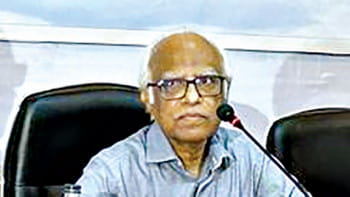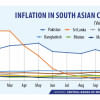What about human development?

We laud the astute observations of the state of our economy by noted economist Wahiduddin Mahmud at a discussion with journalists, organised by the Economic Reporters' Forum on Saturday. He pointed out that megaprojects alone cannot bring about development unless it is accompanied by development in human resources. We echo this perspective that treats development as an overall enhancement of economic and social progress in a country, rather than a narrow definition that extols the benefits of only modern, impressive infrastructure.
The noted economist has aptly pointed out that if the traffic were managed better – which would include making sure buses stopped at the designated stops – it would ease the traffic congestion a great deal. Thus, before megaprojects were initiated, the basic traffic governance should have been prioritised. In fact, we would like to add that if the authorities had enforced discipline on the roads, made sure that unfit buses could not operate and footpaths and parts of our roads were not encroached upon, much of the gridlocks we face could have been avoided.
Megaprojects are financed with huge foreign loans, and these put a big debt burden on Bangladesh. In the last three years, Bangladesh's foreign loans have doubled to $100 billion, and within the next three to four years, the country will have to repay $5 billion every year. Meanwhile, only $1 billion in FDI has come in despite all the megaprojects being implemented. At a time when the economy is facing high inflation, depleting forex reserves and current account deficit, in addition to the severe impacts of the pandemic and the war in Ukraine, the government cannot afford to solely focus on implementing megaprojects. It is vital for the government to take heed to the anomalies pointed out by the economist and adopt the recommendations given.
We would like to emphasise that the government must enforce proper governance of the financial sector and stop the default culture that has bled dry many of our banks. Those who have taken out thousands of crores of taka in loans and laundered the money abroad with no intention of repayment must be brought to book and the funds brought back to the country. The government must also overhaul the education system and focus on the quality of education from primary to tertiary levels, developing more polytechnic institutes to ensure skilled human resources.
While megaprojects can bring about great connectivity and a boost in commerce, the government must also prioritise the basic requirements of human resource development, which includes good health, affordable prices of essentials, safe roads, quality education, relevant technical skills, and decent employment. All this will require strategic planning, investment and political will.


 For all latest news, follow The Daily Star's Google News channel.
For all latest news, follow The Daily Star's Google News channel. 










Comments